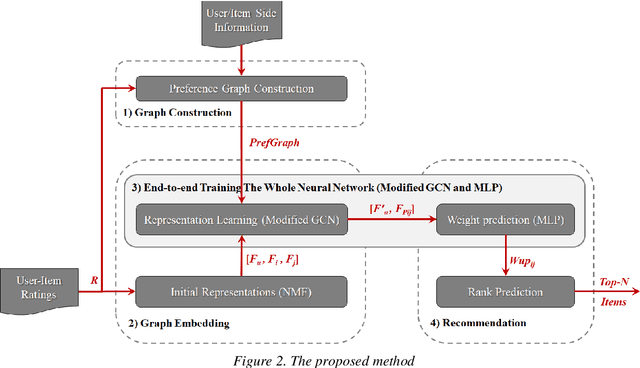Embedding Ranking-Oriented Recommender System Graphs
Paper and Code
Jul 31, 2020



Graph-based recommender systems (GRSs) analyze the structural information in the graphical representation of data to make better recommendations, especially when the direct user-item relation data is sparse. Ranking-oriented GRSs that form a major class of recommendation systems, mostly use the graphical representation of preference (or rank) data for measuring node similarities, from which they can infer a recommendation list using a neighborhood-based mechanism. In this paper, we propose PGRec, a novel graph-based ranking-oriented recommendation framework. PGRec models the preferences of the users over items, by a novel graph structure called PrefGraph. This graph is then exploited by an improved embedding approach, taking advantage of both factorization and deep learning methods, to extract vectors representing users, items, and preferences. The resulting embedding are then used for predicting users' unknown pairwise preferences from which the final recommendation lists are inferred. We have evaluated the performance of the proposed method against the state of the art model-based and neighborhood-based recommendation methods, and our experiments show that PGRec outperforms the baseline algorithms up to 3.2% in terms of NDCG@10 in different MovieLens datasets.
 Add to Chrome
Add to Chrome Add to Firefox
Add to Firefox Add to Edge
Add to Edge